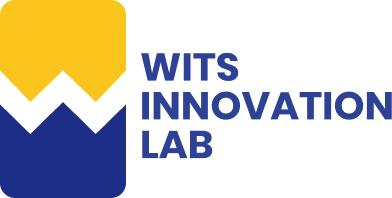As people talk about data being the new oil, the term "datafication" has been a central idea to business strategies of present times. Coined by Viktor Mayer-Schonberger and Kenneth Cukier in their influential book, "Big Data: A Change That Will Alter How We Lead, Work and Think," datafication is the process that turns the diverse areas of business into data that can be traced, monitored and analyzed. This blog, however, looks into the transformational capacity of datafication in different sectors of business, elucidating its advantages, disadvantages, and the future that it brings.
Understanding Datafication
Datafication is the quality of business functions that are transformed into measurable data. With this data-driven approach, companies may make smart decisions, optimize procedures, and encourage innovation. It covers various activities such as digital communications, physical processes, customer interactions, and even employee performance evaluation. Through the use of advanced technologies, businesses can accumulate, preserve, and process large amounts of data to turn it into sound conclusions.
Social Media Platforms
Let us take the example of Facebook and Instagram as social media platforms. Such networks are always recording and assessing our clicks, likes, and other online actions. This information is further utilized to complement the display of tailored online advertisements that ultimately shape our decisions on the internet. To give an example, based on our data, adverts we see on a daily basis are personalized. This process of datafication signifies a breakthrough in content creation, as it makes way for data-driven content strategies to supersede traditional recommendation systems.
Broader Industry Applications
Insurance - Data as a medium to update risk profiles and reinvent business models.
Banking - Utilizes data to evaluate the solvency and probability of individuals' debt repayment.
Human Resources - Interprets data in order to find out about employees' risk-seeking activities.
Recruitment - Removes the need for traditional personality tests with data-driven insights.
Social Science Research - Influences research methods as sample-based approaches become things of the past and data analytics takes over.
Banking - Utilizes data to evaluate the solvency and probability of individuals' debt repayment.
Human Resources - Interprets data in order to find out about employees' risk-seeking activities.
Recruitment - Removes the need for traditional personality tests with data-driven insights.
Social Science Research - Influences research methods as sample-based approaches become things of the past and data analytics takes over.
Case Study - Netflix
Datafication in practice can be summarized by illustrating the case of Netflix. Initially, Netflix provided a mail-order disc rental service through which viewers created a list of their desired DVDs or Blu-ray discs. Subscribers would be on a queue basis to get a disk each and return it to keep getting the next one. This type was created to streamline the feed with fresh content.
Currently, Netflix is following a data-first approach. The service is in over 40 countries and has 33 million members from different parts of the world. Through a user data processing mechanism, the entertainment giant Netflix provides a highly customized viewing experience. Such transition to ratification makes Netflix capable of predicting viewer preferences, recommending shows and delivering the content in a perfect way that demonstrates the revolutionary role of data in contemporary business models.
Currently, Netflix is following a data-first approach. The service is in over 40 countries and has 33 million members from different parts of the world. Through a user data processing mechanism, the entertainment giant Netflix provides a highly customized viewing experience. Such transition to ratification makes Netflix capable of predicting viewer preferences, recommending shows and delivering the content in a perfect way that demonstrates the revolutionary role of data in contemporary business models.
The Importance of Datafication in Business

The main thing about datafication is that it makes a business develop and work in a new way. Datafication can be considered a catalyst for the improvement of the decision-making process, the personalization of the customer experience, and the offering of innumerable benefits that can lead to growth and success. Let's have a look at which areas have the most impact on datafication.
Enhancing Decision-Making
The modern business area is full of data analysis-based decisions if you want to stay competitive. Datafication is a mechanism that allows companies to collect and analyze data from many sources, resulting in vast knowledge about market trends, customer behavior, and operational efficiency. Such findings, therefore, not only give business owners a platform to make informed decisions, reduce risks, and grab new opportunities.
Optimizing Operations
One of the most essential features in achieving business success is operational efficiency. One of the major advantages that companies get when they datafy their operations is the ability to identify bottlenecks, optimize workflows, and bring new levels of efficiency. To illustrate, manufacturing industries reap the benefits of data analytics when they use it to keep track of equipment performance, predict maintenance needs, and minimize downtime. Likewise, retailers can improve inventory management by means of sales analysis and customers' preferences.
Personalizing Customer Experiences
In the age of the customer-centered business, personalization is the basis of the business building and driving brand loyalty. With datafication, companies are able to gather and analyze customer data, which results in them providing customers with personalized recommendations, targeted promotions, and specialized experiences. Besides this, it is not only about customer satisfaction but also about building client engagement and retention.
Driving Innovation
Innovation is the blood that flows through every vein of a successful business. Datafication engenders an innovative culture by giving out insights that can be transformative in the form of new products, services, and business processes. For example, financial institutions can make use of data analysis to create innovative financial products that are in consonance with the rapidly changing needs of their customers. In the same vein, healthcare providers can utilize patient data to increase the effectiveness of treatment procedures and design custom-made care plans.
The Benefits of Datafication
The main thing about datafication is that it makes a business develop and work in a new way. Datafication can be considered a catalyst for the improvement of the decision-making process, the personalization of the customer experience, and the offering of innumerable benefits that can lead to growth and success. Let's have a look at which areas have the most impact on datafication.
Increased Efficiency
The information obtained by turning business processes into data allows organizations to uncover inefficiencies and implement improvements. This way, operations are simplified, costs are reduced, and productivity is improved.
Enhanced Revenue
Datafication leads to discovering new revenue streams and maximizing the existing ones by businesses. Through customer data analysis, businesses discover new market niches, create customer-oriented marketing strategies, and boost sales.
Improved Customer Satisfaction
Personalized experience and tailored marketing messages entice customers to be more satisfied and loyal. Datafication gives businesses an opportunity to learn more about their customers and to create experiences that satisfy their needs and preferences.
Competitive Advantage
Organizations that make use of datafication stand out when compared to their competitors that don't. Taking advantage of the data to make the right decisions, improve operations, and personalize the experience, these companies can outrun their competitors and dominate their markets.
Datafication Issues and Risks

Datafication, a process that involves the transformation of everyday social action into online quantifiable data, provides a wealth of opportunities for companies in all sectors. By transferring processes and information into the data, businesses are getting to a new level of effectiveness, novelty, and understanding of the customers. On the other hand, what lies ahead in the way of datafication's potential being fully realized is a difficult and risky path that must be carefully walked over. Below, we explore the main obstacles businesses must navigate: privacy and security, ethical issues, and biases in the data set.
Privacy and Security Concerns
1. Protecting Sensitive Information
As we live in a time where data breaches are not merely possible but certain, businesses involved in digitalization face the greatest problem - how to protect sensitive information. Companies are frequently victimized by cyber crimes because they have ample valuable data that can be accessed, including personal customer details and sensitive business information. The challenge is twofold: these efforts are about putting in place strong cybersecurity systems that are able to keep off attacks and, at the same time, updating these defences to keep up with the changing threats.
As we live in a time where data breaches are not merely possible but certain, businesses involved in digitalization face the greatest problem - how to protect sensitive information. Companies are frequently victimized by cyber crimes because they have ample valuable data that can be accessed, including personal customer details and sensitive business information. The challenge is twofold: these efforts are about putting in place strong cybersecurity systems that are able to keep off attacks and, at the same time, updating these defences to keep up with the changing threats.
2. Observance of the Data Protection Regulations
Not only does the cross-border data flows require adherence to the complex web of global data protection regulations like the GDPR in Europe, CCPA in California, and various other national and regional laws, but it also adds another layer to data security management. Different regulations have their own set of requirements and consequences for not keeping them, so it is vital for businesses to not only know these rules but also incorporate them into daily operations. This results in the need for continued investment in both technology and expertise.
Not only does the cross-border data flows require adherence to the complex web of global data protection regulations like the GDPR in Europe, CCPA in California, and various other national and regional laws, but it also adds another layer to data security management. Different regulations have their own set of requirements and consequences for not keeping them, so it is vital for businesses to not only know these rules but also incorporate them into daily operations. This results in the need for continued investment in both technology and expertise.
3. Maintaining Customer Trust
In the digital age, the customer's trust is the key and it may be broken quickly by leakages or misuse of data. Companies should not only ensure the security of data but also conduct business transactions as transparent, as possible, in order to keep and earn trust. It involves explicit details on how data is collected, utilized and made secure.
In the digital age, the customer's trust is the key and it may be broken quickly by leakages or misuse of data. Companies should not only ensure the security of data but also conduct business transactions as transparent, as possible, in order to keep and earn trust. It involves explicit details on how data is collected, utilized and made secure.
Ethical Considerations
1. Transparency and Informed Consent
The ethical area of datafication is related to the data management and obtaining consent. Being transparent is to the effect that the company must be open about its data practices as well as the range of data that is being collected. For instance, the consent should be a distinct and deliberate undertaking of the business and the individual, not in small print of the terms and conditions. Ethical data management makes customers perceive the level of their respect and value, not exploitation.
The ethical area of datafication is related to the data management and obtaining consent. Being transparent is to the effect that the company must be open about its data practices as well as the range of data that is being collected. For instance, the consent should be a distinct and deliberate undertaking of the business and the individual, not in small print of the terms and conditions. Ethical data management makes customers perceive the level of their respect and value, not exploitation.
2. Responsible Data Use
Beyond permission, businesses are responsible for the handling of data. This implies that; data utilization needs to be privacy-protecting and non-manipulative so that they do not take advantage of data vulnerabilities. Companies should walk a tightrope as they seek to match their data-driven visions to the ethical principles that protect individual rights and society.
Beyond permission, businesses are responsible for the handling of data. This implies that; data utilization needs to be privacy-protecting and non-manipulative so that they do not take advantage of data vulnerabilities. Companies should walk a tightrope as they seek to match their data-driven visions to the ethical principles that protect individual rights and society.
The Possibility of Bias in Data Analysis
1. Getting the Sample Selection Bias Right
One of the most important problems in data analysis is to guarantee that the data on which decisions are made is reflecting the reality of the whole picture. Sample bias is a bias that is when the data collection does not reflect the environment that it is supposed to represent. This is a basis for making wrong conclusions and taking decisions that even may be unsuccessful or even adverse.
One of the most important problems in data analysis is to guarantee that the data on which decisions are made is reflecting the reality of the whole picture. Sample bias is a bias that is when the data collection does not reflect the environment that it is supposed to represent. This is a basis for making wrong conclusions and taking decisions that even may be unsuccessful or even adverse.
2. Combating Algorithmic Bias
The other big risk is algorithmic bias especially when machine learning and artificial intelligence are used more in data processing. If the data used to train algorithms are biased, then the outcomes of such algorithms will also be biased. Such practices may be discriminative, and they may not be compliant with certain ethical principles and the law in many cases.
The other big risk is algorithmic bias especially when machine learning and artificial intelligence are used more in data processing. If the data used to train algorithms are biased, then the outcomes of such algorithms will also be biased. Such practices may be discriminative, and they may not be compliant with certain ethical principles and the law in many cases.
3. Making the Insights Correct
Finally, the validity of data-driven insights is highly dependent on the reliability of the source data and the methods of analysis employed. Faulty or wrong data sources and methods of analysis may deceive the firms and cause them to make wrong strategic decisions. It is imperative that enterprises divert capital into advanced analytics capable of ferreting useful and effective information from huge amounts of data.
Finally, the validity of data-driven insights is highly dependent on the reliability of the source data and the methods of analysis employed. Faulty or wrong data sources and methods of analysis may deceive the firms and cause them to make wrong strategic decisions. It is imperative that enterprises divert capital into advanced analytics capable of ferreting useful and effective information from huge amounts of data.
Location-Based Technology and Datafication

Location-based technology is a companion to datafication by supplying much more elaborate information about physical places and human movement. Modern location intelligence is powered by sensors, machine learning, and artificial intelligence to offer indoor location data that is reliable and accurate. This information can be utilized to monitor customer behavior, observe pedestrian movements, and accordingly redesign physical spaces.
How Location Data Can Be Used To Boost The Customer Experience
Location data is applied to offer personalized service to customers. For instance, shoppers can get instant navigation, personalized suggestions and customized deals sent to them based on their location. Intel on the movement of pedestrians can be helpful for businesses to make informed decisions that lead to an improved customer experience and higher income.
The Future of Datafication
Datafication has become the norm for most businesses, which gives a promising future. The following are the main datafication trends that will shape our future.
Advanced Technologies Integration
The adoption of such technologies as artificial intelligence (AI), machine learning (ML) and blockchain will drive the process of datafication even further. AI and ML are able to analyze a huge amount of data to find out hidden patterns and develop predictive indicators. Blockchain can prevent data from being hacked and ensure transparency which would make users trust the system.
Put Data Ethics in the Focus
As datafication gets more widespread, ethics of data will be at the center of attention. The enterprises will have to comply with ethical practices while collecting and utilizing personal data transparency, consent, and privacy. This will play an important role in the trust building by customers and mitigation of penalties from regulators.
Growth in Data-Driven Cultures
Organizational culture will be increasingly data-driven, where data is the foundation of decision-making. The cultural shift, in turn, will call for firms to invest in data literacy programs that help workers learn how to use data in their job functions.
Increasing Datafication into Unfamiliar Territories
Datafication will cross traditional business boundaries, encompassing sectors such as healthcare, education, and public services. This, for example, gives healthcare providers the tools to enhance treatment and personalize care. Education institutions are able to use data and technology to improve student learning experiences and outcomes.
Conclusion
Datafication is more than just a buzzword. It is a force that is reshaping the future of business. Businesses may convert essential business aspects to data, which are the basis for informed decision-making, process optimization, and innovation. Yet, to make the most of datafication, organizations should struggle with the issues of privacy breach, security, and ethics. However, as the technologies advance and evolve, datafication seems to be a promising future offering new paths of growth and success.
Companies that are adaptable about datafication and develop data-driven cultures will have a significant advantage, standing out as winners in the highly data-focused world of today. Datafication is a journey that is still going on, and those who embark on it will be leading in innovation and progress.
Companies that are adaptable about datafication and develop data-driven cultures will have a significant advantage, standing out as winners in the highly data-focused world of today. Datafication is a journey that is still going on, and those who embark on it will be leading in innovation and progress.

Written by / Author
Manasi Maheshwari
Found this useful? Share With
Top blogs
Most Read Blogs
Wits Innovation Lab is where creativity and innovation flourish. We provide the tools you need to come up with innovative solutions for today's businesses, big or small.
© 2026 Wits Innovation Lab, All rights reserved
Crafted in-house by WIL’s talented minds

